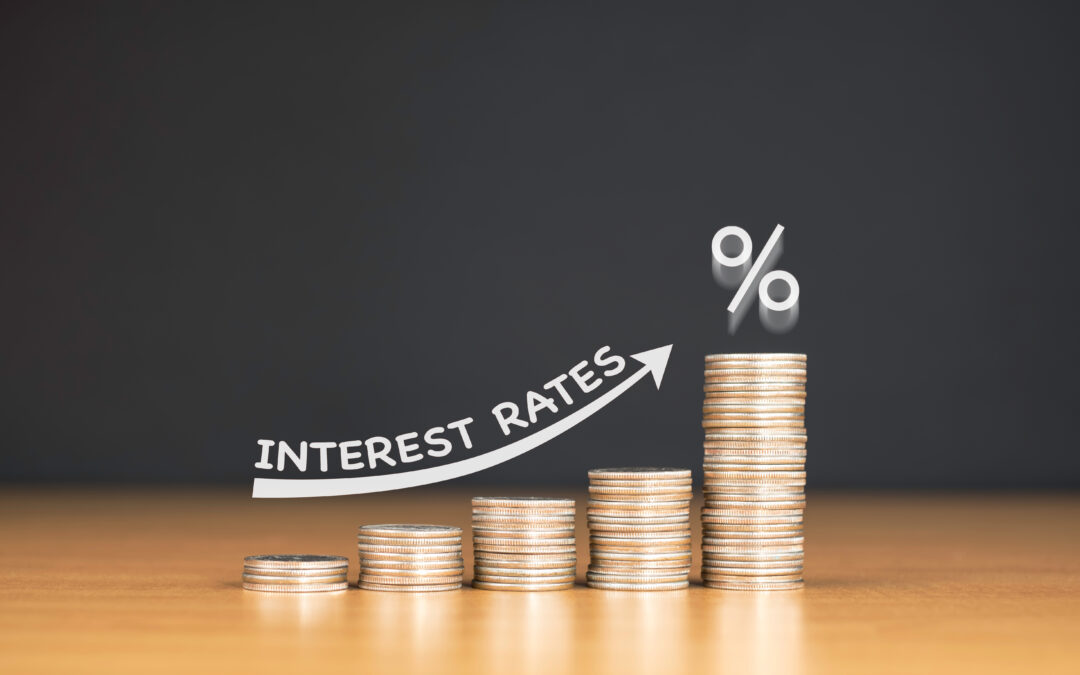A hot topic right now is the recent changes to both the Variable and Fixed interest rates. These changes effect: Mortgages, Credit Cards, and any Variable Loans. If you are nervous about these changes, you certainly aren’t alone.
Media Headlines and water cooler conversations have added to an underlying anxiety already felt by many in 2022. The good news? Variable rates are still holding at historical lows. The better news? While 2022 has put a dent in everyones pocketbooks, it is temporary.
While it may not feel this way, interest rates and inflation will normalize. We will not always pay what we are currently paying at the pumps, in the grocery stores, or to our mortgage lenders.
Key Points:
- Variable Rates– Do I lock-in? The biggest question I get asked right now is whether it’s time to “lock-in.” When looking at each scenario and determining what makes the most sense, I first look at a client’s current rate v.s what locking-in to a Fixed rate would look like. Despite recent increases to the Prime rate, most clients are still paying <4.5% interest on a Variable term. When compared to Fixed rates of 5.75%+, it is very hard to justify a recommendation to lock-in to a Fixed term. Not only does this drastically increase the interest and payment a client needs to make, but when interest rate inevitably drop, the client in the locked-in term is now stuck paying the higher interest rate for the remainder of their term.
- Fixed Rates: We have seen a major shift in the current market from individuals who would traditionally select Fixed rates move to a Variable rate option. However, like market investments, some folks just prefer a set payment & rate, regardless if they leave money on the table. Every scenario is different, and for these features Fixed rates work. If you’re considering Fixed, or if your Fixed mortgage is maturing, let us show you all of your options.
- When does it stop? With soaring inflation rates, governments have had to step-in and use the tools they have available to once again return inflation rates to normal levels. What tools do they use to do so? Interest rates. While I won’t get too technical in this post (more technical post to follow), inflation is simply a product of supply and demand. If we have an economy that cannot keep up to demand, inflation increases closely behind. While there are many factors influencing this particular inflationary period, increasing interest rates is a sure fire way of cooling the economy. As the economy cools down, so does demand and inflation. The government then regulates economic activity by once again reducing rates. So YES, there is an end.
- Will people lose their homes? Recent media headlines claim that 1 in 4 homeowners will have to sell their home if interest rates continue to increase. Please note, these are based on survey results and by no means infer that these individuals would be forced to sell. Remember that since 2016, every single chartered bank mortgage has been subjected to a stress test. This means that every home owner has been qualified at a much higher “stress test” rate (currently 5.25%.) So while mortgage expenses may increase, affordability is still well within guidelines.
- Is this the start to a major real estate correction? In my opinion, no. The recent Real Estate trade activity in Ontario (and much of the country) was at levels that were simply unsustainable. Even now, although we have seen markets cool, there have not been significant price adjustments in most markets. Activity, while cautious, is resuming that of which we previously knew to be normal. Aside from current local demand, Ontario also has one of the largest waiting lists for immigration into the province. Statistics show that 50% of new immigrants purchase within the first 5 years of coming to Canada. This will result in sustained or increased demand in real estate trade for our province. Sustained demand=sustained housing prices.
So while interest rates as a whole are putting more pressure on personal finances, it’s important to remember that this is simply a transitionary period we are going through.
If you have any questions, don’t hesitate to contact us directly.
Chad Harmer CIM, PFP, FCSI, RIS
Senior Financial Planner & Managing Director
1.800.723.2138

